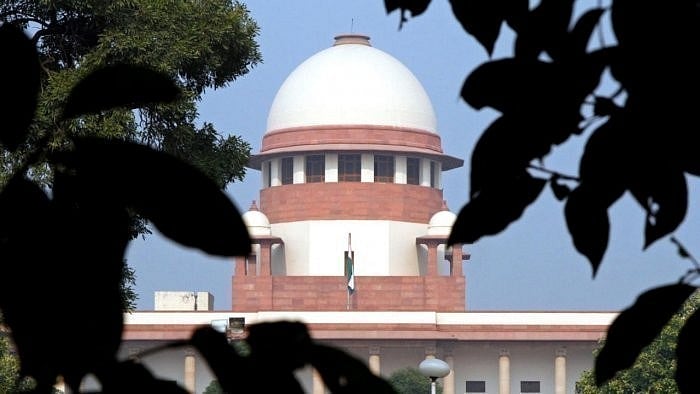
The Supreme Court of India.
Credit: PTI File Photo
New Delhi: The Supreme Court on Monday said undergoing a narco-analysis test cannot be a part of the indefeasible right of the accused to lead evidence, in view of its suspect nature.
A bench of Justices Sanjay Karol and Prasanna B Varale overruled the Rajasthan High Court's judgment which had held that the accused can seek a narco analysis test at a relevant stage in view of the statutory right to lead evidence in defence under Section 233 of the Criminal Procedure Code.
Dealing with an appeal filed by Amlesh Kumar against the Patna High Court's judgment, the court held that an accused has a right to voluntarily undergo a narco analysis test at an appropriate stage to exercise his right to lead evidence in a trial.
However, there is no indefeasible right with him to seek such a test, the court asserted.
The bench emphasised, upon receipt of such an application on behalf of the accused, the concerned court must consider the totality of circumstances surrounding the matter, such as free consent, appropriate safeguards etc, authorising a person to undergo a voluntary narco-analysis test.
The court said, a report of a voluntary narco analysis test with adequate safeguards as well in place, or information found as a result thereof, cannot form the sole basis of conviction of an accused person.
The bench pointed out the constitutional validity of this test, along with similar tests like the polygraph test, came to be challenged before this court in Selvi and Ors Vs State of Karnataka (2010).
The court noted, after an elaborate discussion, a three-judge bench held involuntary administration of this test to be hit by Articles 20(3) and 21 of the Constitution.
As per the principles laid down in the Selvi case, the bench said, "It is clear that under no circumstances, is an involuntary or forced narco-analysis test permissible under law. Consequently, a report of such involuntary test or information that is discovered subsequently is also not per se admissible as evidence in criminal or other proceedings".
The bench set aside the Patna High Court's judgment of November 9, 2023, which allowed a plea by the police to conduct narco-analysis test of all the accused persons, including the appellant herein and other witnesses.
The appellant submitted the High Court's order was in direct contravention of the exposition of law laid down by this court in the Selvi case. In that case, it was observed that forceful subjection of an individual to techniques, such as the narco-analysis test, violated personal liberty enshrined under Article 21 of the Constitution.
The state government contended that since modern investigative techniques are the need of the hour, the High Court was correct in accepting the submission that a narco analysis test of all accused persons will be conducted.
"While the need for modern investigative techniques may be true, such investigative techniques cannot be conducted at the cost of constitutional guarantees under Articles 20(3) and 21 of the Constitution," the bench said.
The court also noted it cannot find a reason in the High Court's order while accepting a submission by the Investigating Officer, stating that the police will conduct a narco-analysis test of all the accused persons.
"Such a submission and its acceptance, is in direct contravention to the judgment of this court in the Selvi case, being hit by the protections under Articles 20(3) and 21 of the Constitution," the bench said.
The court also emphasised such a plea cannot be accepted by the High Court while adjudicating an application for regular bail under Section 439 of the Code of Criminal Procedure.
It is settled law that while entertaining an application for grant of bail, the court has to take into consideration the allegations against the accused; period of custody undergone; nature of evidence and the crime in question; likelihood of influencing witnesses and other such relevant grounds. It does not involve entering into a roving enquiry or accepting the use of involuntary investigative techniques, the bench said.
The case concerned the mysterious disappearance of the appellant's wife, when she went to answer the nature's call while on way to Ayodhya on August 21, 2022.
The wife's sister lodged an FIR, suspecting foul play. The complainant accused the appellant's family members of harassing her for dowry on August 24, 2022.
